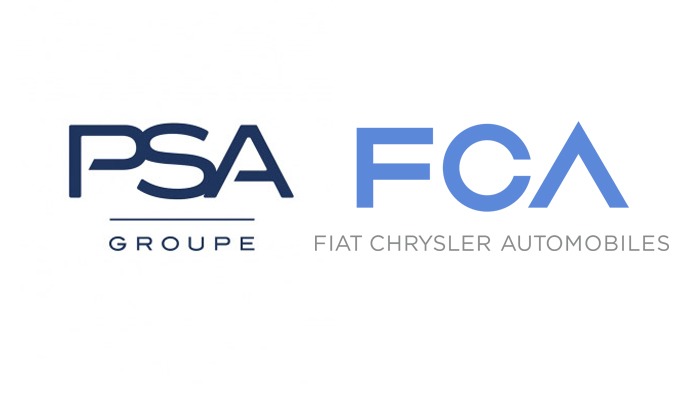FCA-PSA merger approved by shareholders
05 January 2021

5 January 2020
The merger between PSA Group and Fiat Chrysler Automobiles (FCA) has been approved by both companies’ respective shareholders. With 99% of votes cast in favour of the action, the two carmakers are set to form Stellantis on 16 January 2021. The new automotive group will boast 14 brands from PSA’s Citroen, DS, Opel, and Peugeot, to FCA’s Fiat, Jeep, Maserati and Alfa Romeo.
FCA shareholders also approved other merger-related matters, like adopting Stellantis’ articles of association, which lay out the company’s running and administration rules regulating matters such as the appointment of directors and the issuing of new shares. FCA’s shareholders also approved the appointment of the board of directors for Stellantis.
Regulatory go-ahead
This green light from shareholders follows the receipt of final regulatory clearances from the likes of the European Commission and the European Central Bank. The Commission announced its approval on 21 December 2020, after it concluded an anti-competitive investigation into the merger. There had been concerns that the transaction could reduce competition for light commercial vehicles (LCVs) below 3.5 tonnes in the European Economic Area (EEA) and, more specifically, in 14 EU member states and the UK. In line with its investigation, the Commission gathered extensive information and feedback from competitors and customers of FCA and PSA.
To address anti-competition concerns, the two carmakers offered a couple of commitments aimed at enabling entry and expansion. The first is to extend the cooperation agreement between PSA and Toyota Motor Europe for small LCVs. This current arrangement sees PSA manufacturing vehicles for sale by Toyota, mainly in the EU. An extension would mean an increase in available capacity for Toyota and reduced transfer prices.
The second commitment concerned repair and maintenance agreements for passenger cars and LCVs in force between PSA and FCA and their repairer networks, opening up access for competitors. For example, no brand-specific reception, waiting area or entrance will be required for FCA and PSA LCV customers. Furthermore, any ban on repairers using the carmaker’s equipment to service competitors’ LCVs will be lifted.
′Access to a competitive market for small commercial vans is important for many self-employed and small and medium companies throughout Europe,’ said executive vice-president Margrethe Vestager, responsible for competition policy. ′We can approve the merger of Fiat Chrysler and Peugeot SA because their commitments will facilitate entry and expansion in the market for small commercial vans. In the other markets where the two automotive manufacturers are currently active, competition will remain vibrant after the merger.’
Electric dreams
On top of this merger development, FCA also revealed it will invest 755 million zloty (€166 million) in producing electrically-chargeable vehicles (EVs) in Poland. Its Tychy plant in the south of the country is slated to begin building hybrid and battery-electric vehicles (BEVs) for the Alfa Romeo, Fiat and Jeep brands in the second half of 2022. The news was broken by Jaroslaw Gowin, Poland’s minister of development, labour and technology over Twitter.
The Tychy plant is one of FCA’s largest, covering ″‹″‹2.4 million square metres, of which 0.5 million square metres are allocated to production halls and service buildings. A new car comes off its assembly lines roughly every minute, and it produced a total of 263,176 cars for the Fiat, Abarth and Lancia brands in 2019. Henryka Bochniarz, member of the supervisory board of FCA Poland, said the carmaker is one of the largest producers of passenger cars in the country and one of its most important foreign investors in the industrial sector. The group consists of 13 Polish companies, which employ roughly 6,400 people. Furthermore, as much as 74% of the production from these businesses, worth 12.4 billion zloty, found their customers abroad.Nowoczesne, hybrydowe i elektryczne samochody marek Jeep, Fiat i Alfa Romeo już w 2022 zacznÄ… wyjeżdżać z fabryki w Tychach. Inwestycja warta 755 mln zÅ‚ z perspektywÄ… wielokrotnego zwiÄ™kszenia nakÅ‚adów to koronny dowód zaufania rynków do Polski.
″” JarosÅ‚aw Gowin (@Jaroslaw_Gowin) December 29, 2020